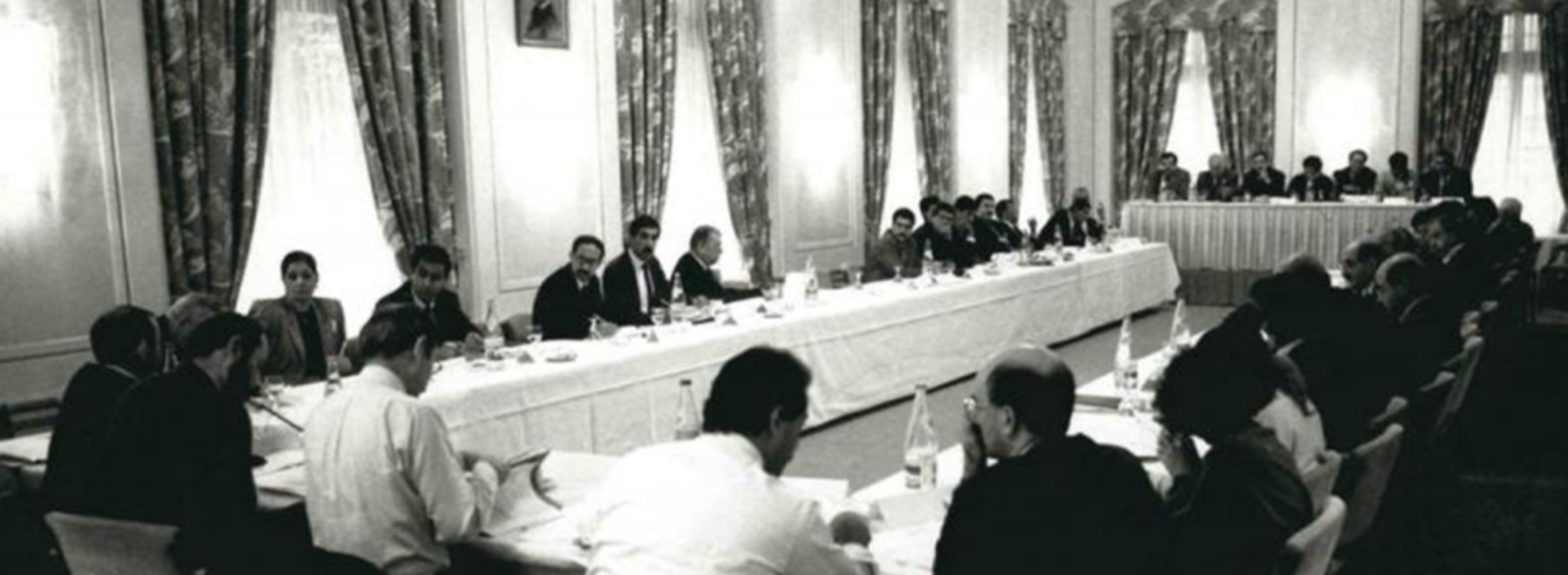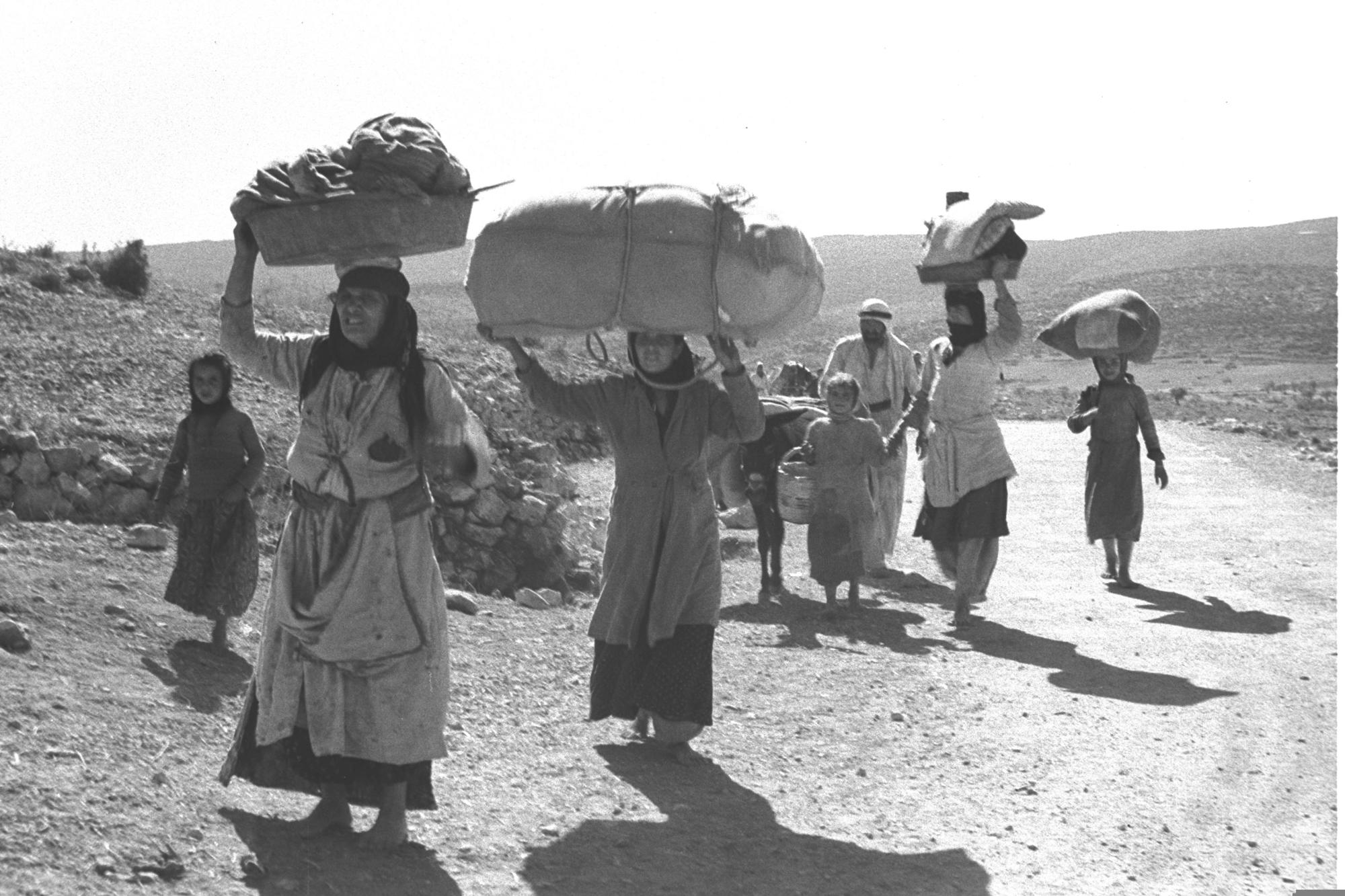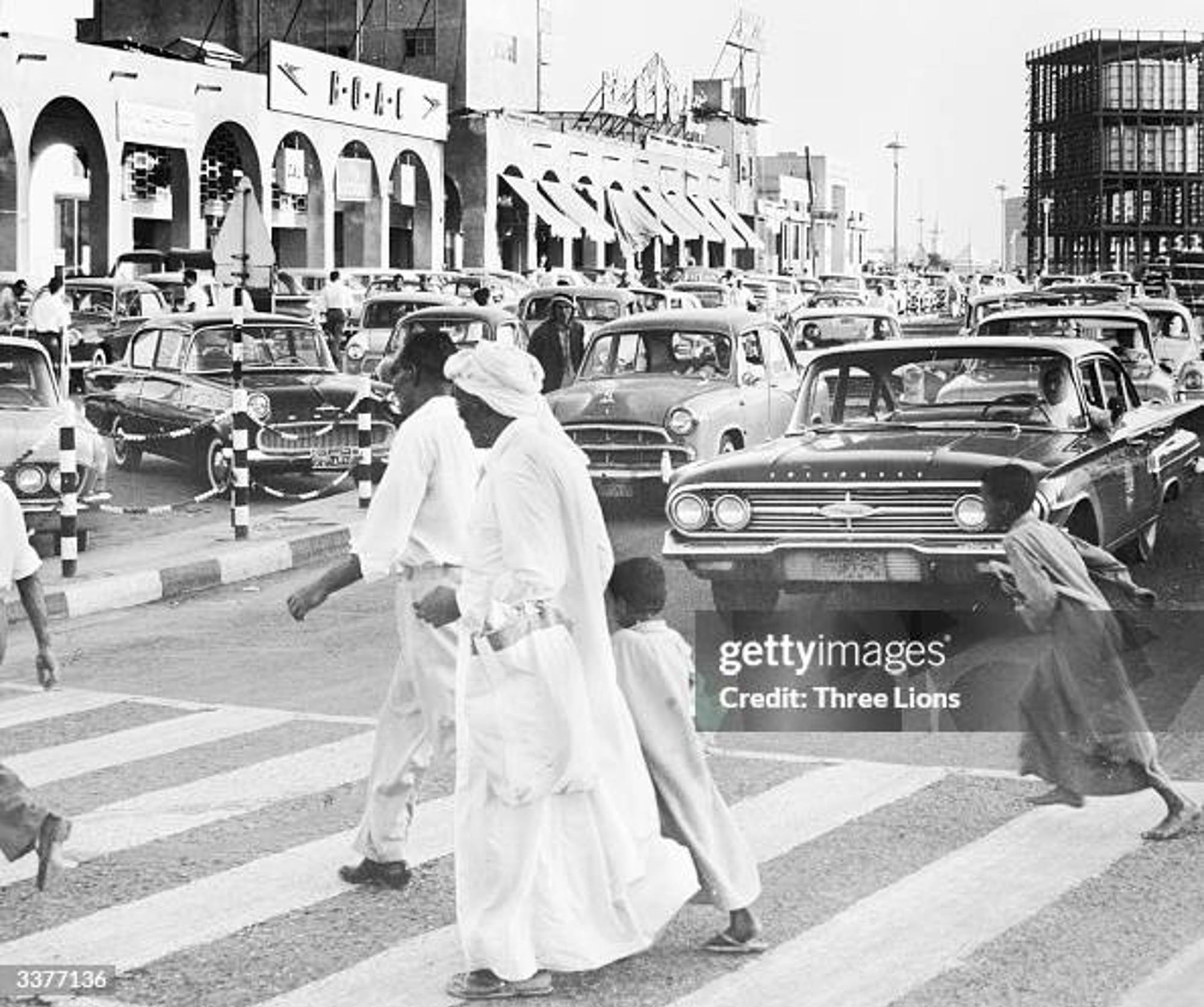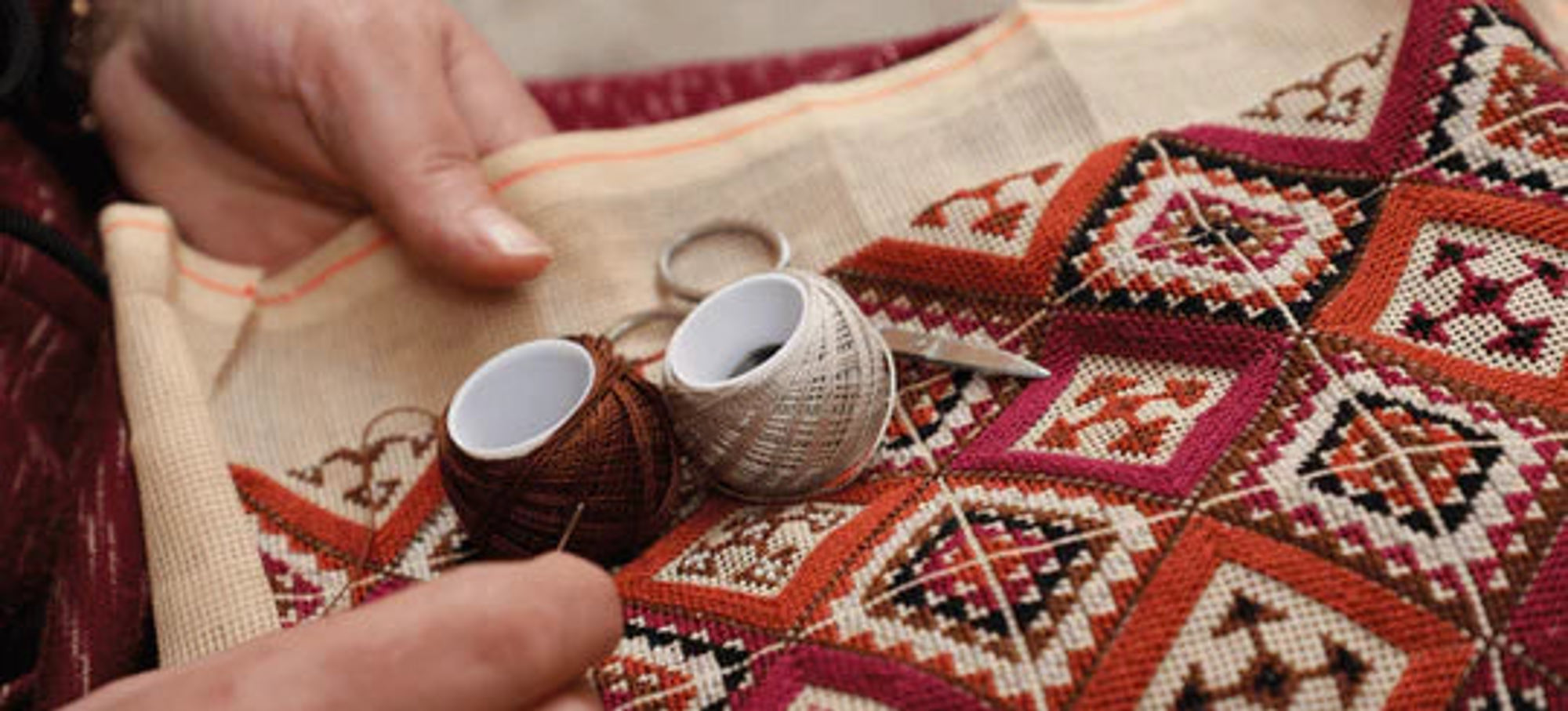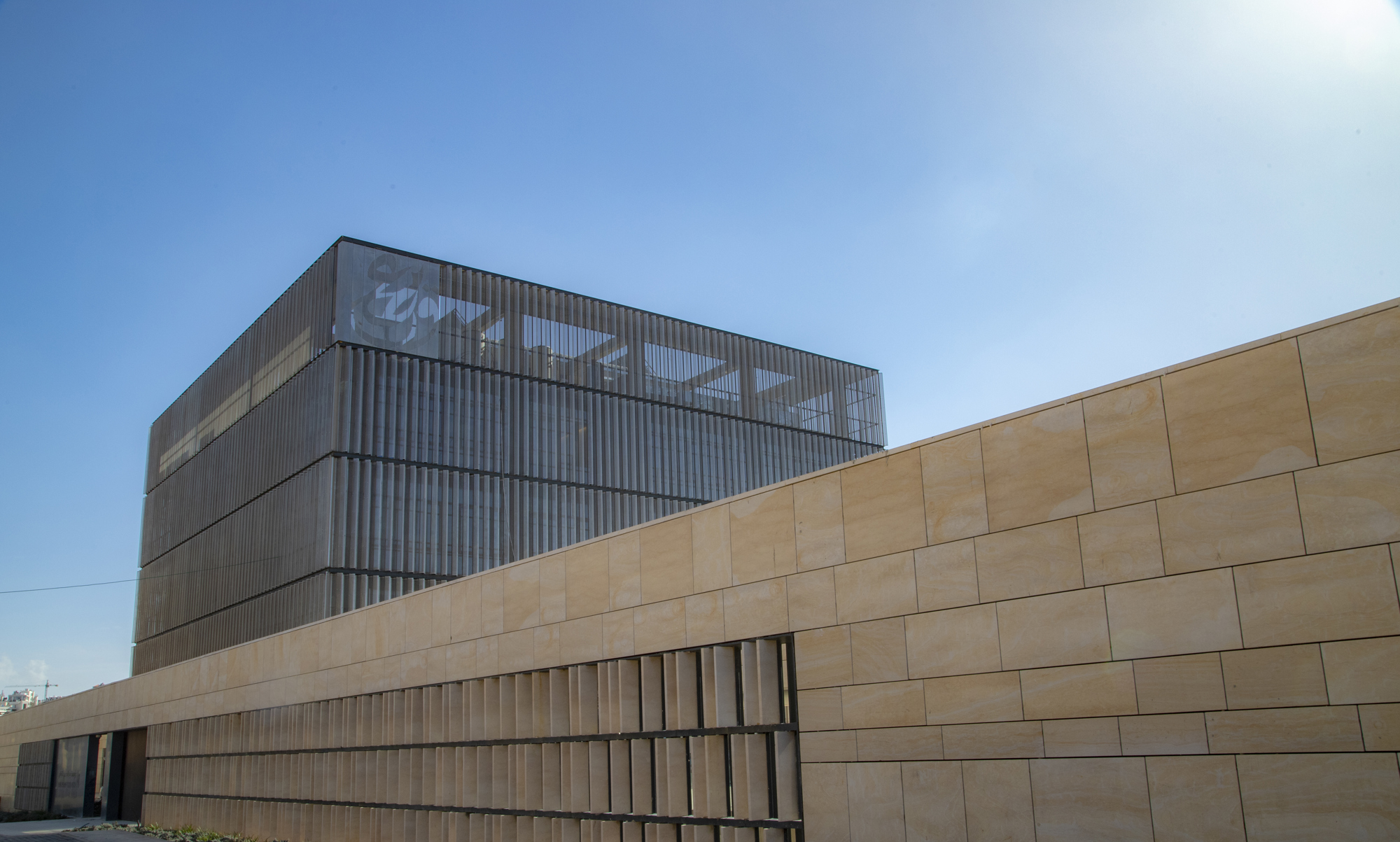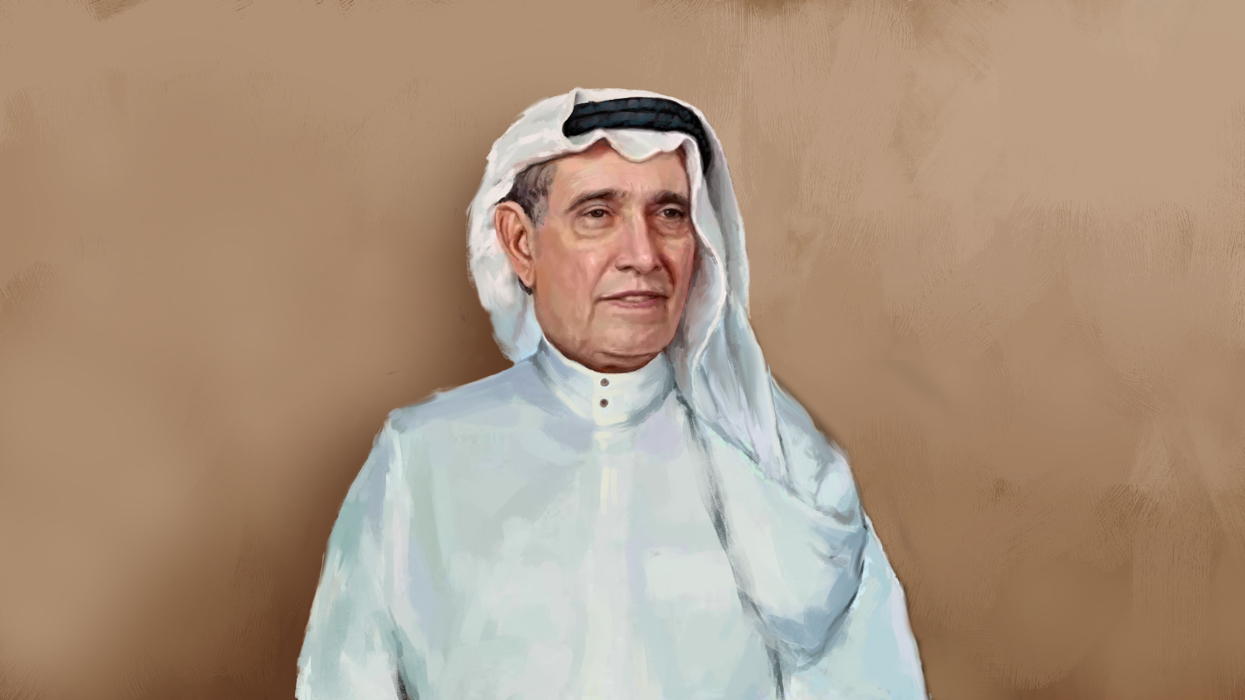
1975
1992
Giving back
Giving back
Following the outbreak of the Lebanese Civil War in 1975, the family were back on the move, but the plight of Palestine remained front and centre of Al-Qattan’s mind and with other leading Palestinian intellectuals and businessmen, he created The Welfare Association (Taawon) in a bid to find new ways to support Palestinians at home and abroad.
"He had this brilliant idea to pool resources and create a new model that would also re-emphasise Palestinian identity. "
NAJWA AL-QATTAN
Following the outbreak of the Lebanese Civil War in 1975, Al-Qattan and Leila returned to Kuwait, while their daughters Lina and Najwa were sent to study in Switzerland and the United States (respectively), and their sons, Hani and Omar, went to boarding school in England.
Despite Al-Qattan’s prolonged separation from his homeland, he remained committed to helping Palestinians in any way he could, seeking to fill the gaps left by decades of displacement and ineffective international interventions.
In 1983, following the catastrophic Israeli invasion of Lebanon, Al-Qattan and a group of respected Palestinian intellectuals and diaspora figures gathered in Geneva. The invasion had culminated in the Sabra and Shatilla Massacre, where more than 2,000 Palestinian civilians were brutally murdered by right-wing Lebanese militiamen under the watchful eye of the Israeli Army. Among those at the meeting were Edward Said, Ibrahim Abu Lughod, close friends of Al-Qattan.
With the destruction of the PLO in Lebanon, this group sought ways to maximise their entrepreneurial, technical, academic, and philanthropic resources. Their goal was to find the most effective ways to support their homeland and assist those trapped in refugee camps in neighboring countries such as Lebanon.
Out of this meeting was born The Welfare Association (Taawon), a Palestinian NGO dedicated to supporting Palestinians at home and abroad, improving their daily living conditions, through programmes spanning education, health, community development, and emergency relief.
“Being Palestinian was part of every conversation and education was always very important to my parents,” recalls Leenah Al-Qattan. “It was something drilled into us from a very young age.”
As a child, Hani Al-Qattan, witnessed his parents’ generosity and commitment to the Palestinian cause first hand. “We grew up in a house that really believed in philanthropy. We were fed it. We were taught it,” he says. “I could see the pride that giving gave my parents and from very early on my father’s ambition to succeed was very much tied to being able to generate wealth to help other Palestinians.”
Hani says his father’s giving was a mix of personal and institutional and he never asked for anything in return, except that should the person he helped succeed, may they remember how they started and find ways to support other Palestinians.
Ziad Khalaf directed the Human Resources Development Programme at Taawon for four years, and served as Acting Director of Programmes, before being invited by Al-Qattan to be the founding CEO of A M Qattan Foundation.
“The Welfare Association was so different to anything that had come before it,” he explains, describing it as “being at the vanguard” with its pooled funding and collaborative and innovative approach. “I think this was because of the peculiarity of the Palestinian situation, being under occupation and thus always treading very carefully, but also with this strong diaspora influence from people who had been exposed to giving models in the West.”
From this groundbreaking beginning, Taawoon has endured and today is Palestine’s largest nonprofit organisation which has disbursed more than US$660m since its founding. According to its website, it remains “dedicated to promoting the steadfastness of Palestine and Palestinians and improving their daily living conditions”, despite the daily struggles and tragedies they live.
And there have been many of these. Indeed, not long after Taawon was formed, in 1987, a spontaneous popular uprising began in the West Bank and Gaza in response to the decades of Israeli military occupation. Now known as the First Intifada, this sustained series of non-violent protests and acts of civil disobedience lasted for six years until the signing of the Oslo Accords in 1993.
